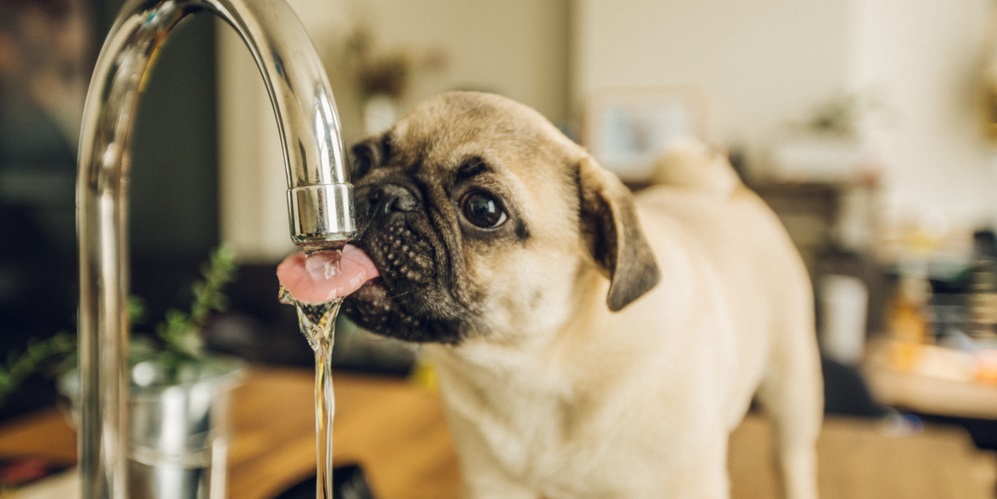If your dog is having trouble pooping, a natural laxative for dogs can be a safe and gentle way to help. Constipation is a common problem in dogs, and it can make them feel uncomfortable, tired, or even sick. In many cases, simple home remedies using natural ingredients can get your dog’s digestion moving again without the need for strong medicine or a vet visit.
What Is Constipation in Dogs?
Constipation happens when your dog cannot poop normally. Their stool (poop) becomes dry, hard, or too large. This makes it hard to pass. Some dogs may strain or cry when they try to go. They might also stop eating or act tired.
Signs of Constipation in Dogs
Here are signs that your dog may be constipated:
Trying to poop but nothing comes out
Hard or very small poop
Not pooping for 2 or more days
Crying, whining, or straining while pooping
Bloated or hard belly
Less appetite or energy
Scooting or licking near the bottom
If you see more than one of these signs, it may be time to help your dog with a natural remedy.
Why Do Dogs Get Constipated?
There are many reasons why dogs get constipated. Some of the most common causes include:
Not drinking enough water
Not getting enough fiber
Lack of exercise
Eating bones, fur, grass, or garbage
Old age or weak muscles
Side effects from medicine
Stress or changes in routine
Anal gland or prostate problems (especially in older dogs)
Natural Laxatives That Are Safe for Dogs
Here are some of the best natural laxatives you can try at home to help your dog:
1. Canned Pumpkin (Plain, Not Pie Mix)
Why it helps: Pumpkin has fiber and water. It helps make poop soft and easy to pass.
How to give:
Small dog: 1–2 teaspoons
Medium dog: 1 tablespoon
Large dog: 2–5 tablespoons
Mix it into your dog’s food once or twice a day.
Do not use pumpkin pie mix. It has sugar and spices that are bad for dogs.
2. Coconut Oil
Why it helps: Coconut oil makes the stool slippery so it can pass easily.
How to give:
Small dog: ¼ teaspoon
Medium dog: ½ to 1 teaspoon
Large dog: 1 to 2 teaspoons
Add it to your dog’s food once a day. Start small and watch for diarrhea.
3. Olive Oil or Fish Oil
Why it helps: These oils help the stool move through the intestines.
How to give:
Add 1 teaspoon per 20 pounds of body weight
Give once a day, mixed with food
Too much can upset the stomach, so start with small amounts.
4. Aloe Vera Juice (Pet-Safe Only)
Why it helps: Aloe helps soothe the gut and gently helps poop move.
How to give:
¼ to ½ teaspoon for small to medium dogs
Mix it with food
Only use aloe labeled safe for dogs
Raw aloe can be toxic—never use it from the plant unless approved by a vet.
5. Psyllium Husk (Metamucil, Plain Only)
Why it helps: Adds bulk and moisture to the poop. Makes it easier to pass.
How to give:
Small dog: ¼ teaspoon
Medium dog: ½ teaspoon
Large dog: 1 teaspoon
Always mix with water or broth. Never give dry.
6. Leafy Greens (Like Spinach or Kale)
Why it helps: These veggies are high in fiber.
How to give:
Cook lightly and chop
Add 1–2 tablespoons to your dog’s food
Don’t feed raw greens in large amounts
7. Watermelon or Cucumber (Small Pieces)
Why it helps: These fruits have lots of water. They help keep your dog hydrated.
How to give:
A few small chunks as a treat
Remove all seeds and rinds
Exercise and Hydration: The Natural Helpers
Sometimes the best natural laxatives are simple:
Walk your dog more often. Movement helps the bowels.
Make sure they drink lots of water. Try adding broth to meals.
Play and run with them to help the digestive system work better.
Foods and Items to Avoid
Some things can make constipation worse or be dangerous for your dog. Never give:
Human laxatives
Milk or cheese
Bones
Fatty table scraps
Enemas (unless done by a vet)
Mineral oil (can cause choking if swallowed wrong)
Spicy or salty foods
Chocolate, onions, or garlic (toxic!)
When to Call the Vet
Natural remedies are great for mild constipation. But sometimes your dog needs more help. Call your vet if:
Your dog hasn’t pooped in 3+ days
Vomiting or signs of pain appear
There’s blood in the poop
Your dog stops eating
The belly is swollen or hard
The natural laxatives don’t help after 2 days
Your dog might have a blockage or another health issue that needs professional care.
How to Prevent Constipation in the Future
To keep your dog’s tummy healthy and regular:
Feed a diet with fiber (add veggies or pumpkin)
Always provide fresh water
Give daily walks and exercise
Groom long-haired dogs to avoid hairballs
Avoid giving bones, sticks, or garbage
Keep a regular potty schedule
Add dog-safe probiotics to meals
Frequently Asked Questions (FAQs)
1. What is a natural laxative for dogs?
A natural laxative for dogs is a gentle, non-prescription remedy made from food or natural substances that helps relieve constipation. Common examples include canned pumpkin, coconut oil, olive oil, and psyllium husk.
2. Can I give my dog human laxatives?
No. Human laxatives like Dulcolax or Ex-Lax are not safe for dogs and can cause serious side effects. Always use dog-safe, natural remedies or consult a veterinarian.
3. How much pumpkin should I give a constipated dog?
For constipation, give:
Small dogs: 1–2 teaspoons
Medium dogs: 1 tablespoon
Large dogs: 2–5 tablespoons
Use plain canned pumpkin, not pie filling with sugar or spices.
4. Is olive oil safe for dogs with constipation?
Yes, olive oil is a natural and safe laxative for dogs in small amounts. Add about 1 teaspoon per 20 lbs of body weight to your dog’s food once daily until constipation improves.
5. What if my dog hasn’t pooped in 3 days?
If your dog hasn’t pooped in more than 48–72 hours, or shows signs of pain, vomiting, or bloating, contact your veterinarian immediately. This may be a sign of a blockage or other serious issue.
6. How can I prevent constipation in my dog naturally?
To prevent constipation:
Add fiber-rich foods like pumpkin or leafy greens
Ensure plenty of fresh water
Give regular exercise
Stick to a consistent bathroom routine
Avoid giving bones or hard-to-digest items
7. Are there fruits that help relieve constipation in dogs?
Yes, hydrating fruits like watermelon and cucumber (in small, seedless amounts) can help. They add water to your dog’s system, which helps soften stool.
Final Thoughts
Constipation in dogs is common, but it can be treated safely at home with natural laxatives. Foods like pumpkin, coconut oil, or leafy greens can work wonders.
Always start with small amounts and watch how your dog reacts. If things don’t improve, your vet can help find the right solution.
Your dog depends on you to feel good—and helping them poop comfortably is a big part of that!

